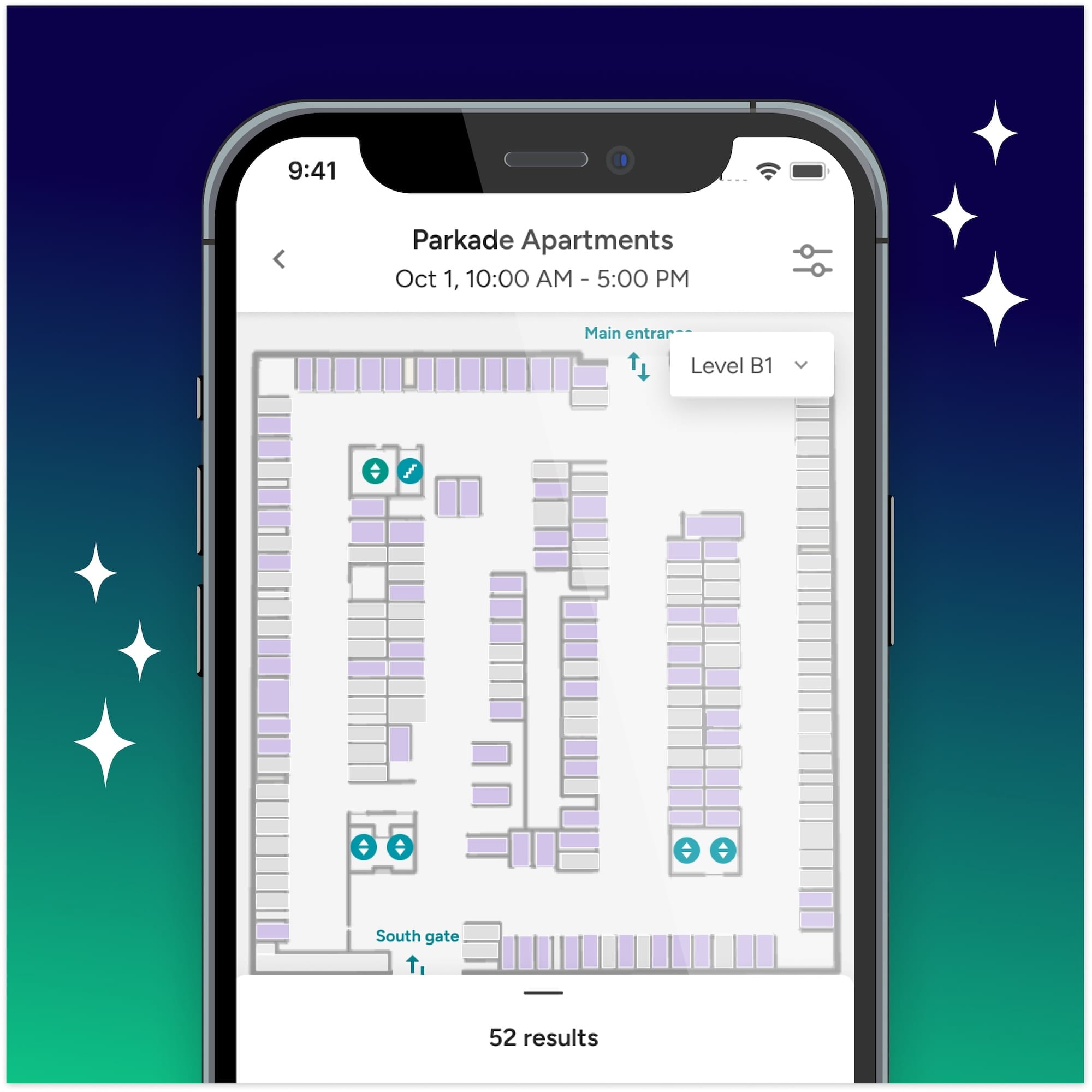

TABLE OF CONTENTS
Technology is one of the most important tools for doing your job better, easier, and quicker when it comes to multifamily property management. The numbers show this clear need. Between 2012 and 2020, proptech (property technology) companies raised over $43 billion. And this $43 billion has been put to good use. For any problem that you face as a property manager, there’s a good chance a tool exists that can help you eliminate or alleviate that problem.
However, getting the “yes” to buying this new piece of technology may be another hurdle in itself. As the one with your hands in the day-to-day operations of your property, you can likely see the need for new software, and the benefits you stand to gain from implementing this software, but you also need to convince owners or upper management of its value.
We talked to several property management experts who have years of experience advocating for new technology, and they shared some of the most effective strategies for generating excitement about new tools.
First, take a step back and highlight the problem your new tool is meant to solve. Since they may not be as involved in the everyday processes of the property, you need to give owners and upper management evidence that this problem is having real, negative effects on your operations.
Property manager Kristi Fickert gave us the following advice:
“Sometimes owners or higher-ups don't know there's an issue or don't perceive the issue to be as big as it may actually be. If you can break down the situation into digestible data that supports your case, it'll be super helpful in getting the outcome you want.”
This data could look a variety of ways. It could be an increase in the volume of complaints, an increase in the time spent handling something, or a decrease in completing a key task because time is being spent solving this problem without technology.
Kristi shared this helpful slide from a recent webinar she hosted on “getting the yes” which shows how this may play out if you’re asking for a new marketing tool.

You may also want to pair this hard data with anecdotal data. Including quotes from other team members who would directly benefit from this technology is also highly valuable. This can help to show that the problem is felt by more than just your role.
A property manager from one of our customer’s properties, Tailor Lofts, shared with us a story of when she first started at the property. The team was “using” a spreadsheet to manage their parking. We say using in quotes because within her first few weeks, she was told by another team member, “Oh we never use that because it’s such a mess.”
Sharing stories like this highlights a part of the process that is clearly broken, making the need for this technology more urgent.
Another way to prove that this technology is necessary and beneficial is to highlight its potential to impact the resident experience.
Property manager Sarah Dundee shared with us:
“If it’s something that gets complained about a lot by residents, you can link it back to resident satisfaction/retention.”
If the problem you’re trying to solve is resident-facing, you’ve likely gotten quite a few complaints from residents, whether it’s via email, maintenance requests, or conversations when they walk into the office. Start gathering all of these instances to be able to show hard proof that solving this problem is a clear priority.
Taking parking management, for example. When parking is handled in an extremely manual (and often disorganized) manner, reviews like the one below are common. Being able to put these words from actual residents in front of owners can prove that this is a problem worth solving.

On top of proving the depth of the problem, you also want to demonstrate how the technology you want to implement will actually solve that problem. To do this, you want to come prepared with research. Know how the product works and what its strengths/weaknesses are.
If you’re able to find any testimonials from current users of the product showing a real impact on resident satisfaction or retention, that’s even better ammo to make the case for the technology.
Ultimately, a property owner’s goal is to generate revenue from their properties. If you can demonstrate that the technology you’re looking to implement will have a good ROI, helping them boost their NOI (net operating income), you should be in good shape.
To do this, you want to give them a breakdown of the costs vs. the benefits, and map out when they will see ROI, whether it’s in the first month or a few months down the road. You’ll need to gather clear cost estimates from the technology provider so that you know what you’ll be paying for on a monthly/yearly basis.
Compare this number to the potential extra revenue you can bring in. We’ll touch on time savings in the next section, but often there are other revenue-generators other than just saving time. For example, will this technology help you bring in more revenue from amenities, charge for guest parking, or eliminate any major costs like gate clickers?
Include in this any small price increases that you may be able to implement to level out of the costs of this technology.
As property manager Scott Karchner shared with us,
“For parking software, do you charge the same price for every spot? If so, what would more dynamic pricing look like to offset some of the cost?”
Being able to lay the numbers out in front of ownership or upper-level management and prove that the costs are going to be overshadowed by the gains will help to eliminate one of the biggest barriers to getting the yes for this technology.
As we hinted at above, time savings can be another extremely valuable way to prove that the piece of proptech you want to implement can generate revenue and also reduce operational expenses, boosting overall NOI at your building.
Especially as on-site teams are getting increasingly smaller, and since the workload hasn’t gone down in tandem, owners are always excited about ways to optimize operations. Many proptech tools are really effective at automating certain processes and saving time. If the tool you’re looking at can offer this benefit, make sure you highlight it.
When you’re in the process of vetting a potential tool, make sure you ask for these numbers or seek them out in the case studies they have published. For example, in all of the Parkade case studies published, teams report anywhere from a 60-97% reduction in time spent on parking. This type of proven result can definitely make an owner’s ears perk up.
Property manager Scott Karchner recommends taking this a step further, though.
“Don’t just show time savings, show what that time equals in payroll. Does the payroll savings cover the cost? We just did this for my company and the new process/tech is going to save the company money just by making two processes more efficient for staff. It also will allow staff to focus on other areas that tend to be overshadowed.”
When you’re making the ask to implement a new proptech tool, you want to eliminate any potential doubt by getting specific.
Kristi Fickert told us,
“Try to be as specific as possible and don't generalize. Many times people will 'generalize' their ask instead of being as specific as possible.”
Make sure you don’t fall into this trap. Come prepared by knowing exactly which tool is going to solve your problem and how it compares to alternatives. The more details you have prepared to combat any objections, the better off you’ll be in winning management’s approval.
If you need some help getting owners to open up to a more tech-forward approach in general, you may want to take a more long-term approach: Hesitating to adopt new proptech tools can cost more in the long run. While sticking with familiar methods might feel safe, outdated systems limit your property's growth and resident satisfaction. Competitors are already using advanced technology to streamline operations and boost profits.
Adopting new technology is about future-proofing your processes. Innovative tools help you reduce manual labor, free up time for higher-value tasks, and lead to more efficient operations and happier residents.
So really, the question of whether to adopt new proptech is one of whether you want your business to endure or not.
.jpg)
As parking management becomes increasingly digital, security becomes critical — and we’re excited to share that we've achieved a major security milestone.
Read Story
We’re thrilled to announce one of our most significant leaps forward this year: the launch of dynamic maps across our mobile and web applications.
Read Story
Now that AB 1317 is official, it’s time to brush up on the requirements and see how your properties stand to benefit.
Read Story